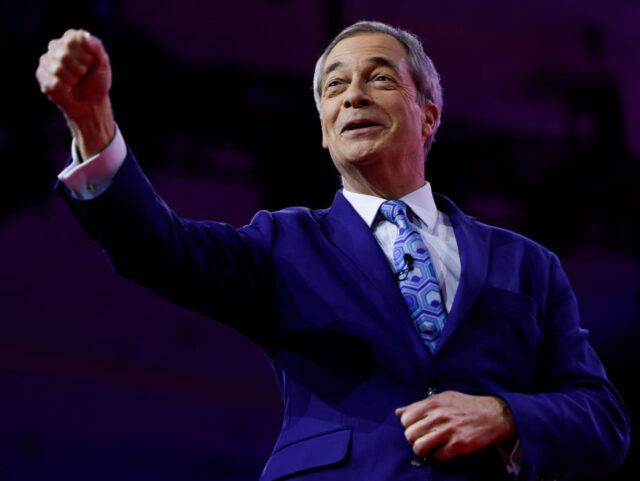“That will teach me [for trusting the] reporting of my old employer”, says former top BBC man as he issues a good-natured apology to Nigel Farage for repeating now-apparently-false claims about the Brexit leader.
Once one of the most familiar faces on Britain’s embattled state broadcaster, Jon Sopel is now turning into a fierce critic, saying he should have known better than to trust the BBC’s reporting on Nigel Farage and slamming its handling of the Huw Edwards scandal earlier this month. Responding to the revelation this week that briefings against Nigel Farage by Coutts bank, part of the partially state-owned Royal Bank of Scotland-Natwest group published by the BBC were not actually factual, former top BBC editor Sopel wrote:
Always believed when I get things wrong, I own up to it. I got it wrong. Sorry. That will teach me to trust reporting of my old employer… If your political views were even part of the reason why account was suspended from [Coutts] that is totally reprehensible[.]
While the message was in response to a provocative message from Farage challenging Sopel to admit the error, his response was equanimous, writing in response:
Jon, Thank you so very much for those words. I fully accept the apology and wish you well. As broadcasters we now have a duty to fight for free speech for our viewers and listeners.
Former European Parliament colleague of Mr Farage, Martin Daubney noted the exchange and said it was “fair play” to Mr Sopel for having the guts to admit when he’d been misled by the BBC.
Nigel Farage Warns of Cashless Society ‘Tyranny’ as UK Treasury Chief Latest to Have Bank Account Blockedhttps://t.co/LWI1SAVDXf
— Breitbart London (@BreitbartLondon) July 11, 2023
Mr Farage revealed that his ban, with whom he has worked for decades, were closing his account last month and that he had been unable to open another account at any other UK bank, leading to claims he was a victim of politically-motivated ‘debanking’. The BBC appeared to hit back at those claims, their Business editor reporting that: “Nigel Farage fell below the financial threshold required to hold an account at Coutts, the prestigious private bank for wealthy customers the BBC has been told… [the bank] rejected the notion that the decision to close his Coutts account was in any way political.”
Mr Farage sensationally published internal Coutts documents he acquired proving this was false this week, and that he had in fact been debunked for political reasons. The consequences of this scandal appear to be growing by the day, with establishment newspapers speaking of a major scandal for the bank involved and the government reportedly moving to legislate to require banks to protect freedom of speech.
Despite Sopel moving quickly to apologise, others haven’t yet moved to do the same for apparently maligning Farage, including BBC editor Jack. It is reported by the Daily Telegraph today that just the night before that story broke, Jack sat next to Natwest chief executive Dame Alison Rose, from whom it is now implied the story could have originated.
Both the bank and BBC have refused to comment on that speculation by the Telegraph. Farage has said the Natwest boss should be “hauled” before Parliament’s Treasure committee to answer urgent questions on her actions.
The admission by Sopel that he might have known better than to trust a BBC report on Nigel Farage is significant, given Sopel worked for the BBC from the early 1980s until last year, holding several top editorial positions and becoming something close to a household name in the United Kingdom for his prominent camera-facing role in many world events. His remarks to Farage, even tongue-in-cheek as they may have been follow other comments last week where Sopel questioned the BBC’s handling of the allegations that a top star at the corporation was entangled in an underage explicit pictures scandal.
Sopel said: “I think that some of my colleagues in BBC News need to look at themselves… “I think the BBC is a complicated beast and it would be lovely to think of it as a streamlined organisation where one bit knows what the other is doing. But the BBC is a series of completely uncoordinated limbs… And I just thought: ‘Hang on, does one know what the other is doing?’.”
UK Government Looks Set to Take Action After Farage Debanking Saga: Report https://t.co/nxKw7wyUpY
— Breitbart London (@BreitbartLondon) July 20, 2023

COMMENTS
Please let us know if you're having issues with commenting.